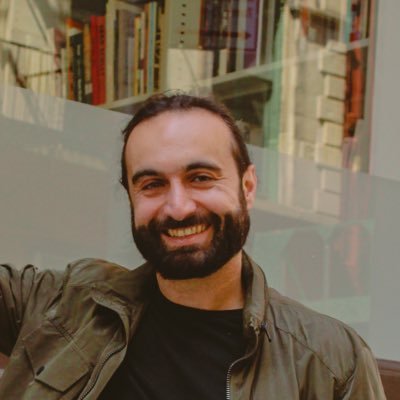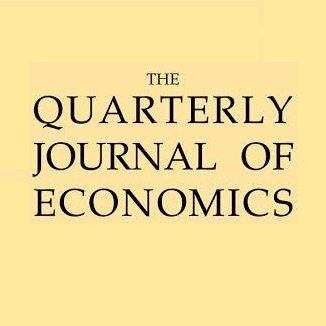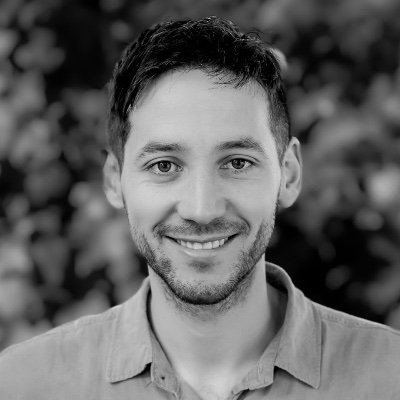
Kristina Manysheva 🇺🇦
@manysheva_k
Followers
1K
Following
2K
Media
26
Statuses
496
Assistant Professor @Columbia_Biz\\ Macrodevelopment \\ Belarusian \\ Postdoc at @PrincetonEcon; @NUEconomics PhD; CDE Alum @Williamscollege.
New York, USA
Joined July 2016
🚨New Working Paper w/ Martí Mestieri & Johanna Schauer Why is 🇿🇦 still one of the most unequal countries in the world—30 years after Apartheid? We build a dynamic spatial GE model to understand why inequality persists—and why it's increasingly within the Black population 🧵1/8
6
41
211
We construct harmonized estimates of the investment network for 58 countries at different stages of development, characterize these networks, and quantify how they matter for differences in income per capita between poor and rich economies. Thanks @vox_dev for featuring our work!
🆕 Investment networks, capital accumulation, and sectoral productivity: Explaining global income gaps Today on VoxDev, @luchi_casal (@Columbia_Biz) & @juli_caunedo (@CornellEcon) discuss cross-country measures of investment networks:
0
7
31
PEDL turns 15(!) and we are getting folks together for a conference. Send us your best papers by October 20 and come hangout with us in beautiful Oxford in March. Details: https://t.co/c2gj9tG6NQ Special session for PhD students! Spread the word.
pedl.cepr.org
Conference InformationThe Private Enterprise Development in Low-Income Countries (PEDL) programme is pleased to announce a special three-day conference marking the 15th anniversary of PEDL. The event
0
4
12
Our paper provides a method to estimate demand elasticities and infer quality change in settings beyond the CES preferences. Applying method to US imports, we show official measures of inflation in import prices are upward biased bc they don’t account for quality improvements.
Recently accepted by #QJE, “Aggregation and the Estimation of Quality Change: Application to U.S. Import Prices,” by Errico and Lashkari (@DanialLashkari):
1
3
30
Thrilled to see this out! And I cannot say enough good things about working with @chris_d_clayton and @m_maggiori
Governments use their countries’ economic strength from financial and trade relationships to achieve geopolitical and economic goals. We provide a framework of the sources and uses of geoeconomic power. Mixing macro theory and international relations. https://t.co/RBRjF417M5
5
24
158
Working in intersection of Finance and Development?! Submit your paper by November 16th 📆 2026 edition of WEFIDEV Conference 👇
What a joy to announce the 2026 WEFIDEV-RFS-@cepr_org Conference on #Finance & #Development on Apr 18-19 at @KelloggSchool. Co-organized with #GiorgiaBarboni, @KimFeCramer, #SeanHiggins, RFS Executive Editor Tarun Ramadorai & RFS Editor Viral Acharya. Submit by Nov 16! Info ⬇️
1
5
13
🚨Week before the deadline‼️ 🙌Send us your best Macrodevelopment papers! STEG Annual Conference & Theme Workshops, January 2026 — big ideas, great discussions, and a bonus point: secret location🌍🤫 Deadline: 31 August 2025 → How to apply👇 https://t.co/Nq4y9If7JI
@cepr_org
0
16
40
Thank you @RichFedResearch for having me for an amazing program during #EconCOREweek! Excited to be back!
@manysheva_k of @Columbia_Biz was the first presenter this morning. She discussed the paper “The Origins of Structural Transformation” #EconTwitter
0
0
6
In African cities, small firms locate on busy roads to attract customers and increase profits, exposing workers to substantial air pollution. Read today's article to learn more: https://t.co/cEYFu4pJwJ
🆕 Workers in African cities are extremely exposed to air pollution Today on VoxDev w/ @bassi_vittorio (@USC_Econ), @mattkahn1966 (@USC_Econ), Nancy Lozano Gracia (@wb_research), @PorzioTommaso (@Columbia_Biz) & Jeanne Sorin (@UChiClimate):
1
7
14
🏁 Bottom line: Removing legal barriers isn't enough. The geography of exclusion—via Townships—continues to shape economic opportunity long after Apartheid. Read the full paper👇 📄 https://t.co/4oOs4VNIg8 Feedback very welcome! 8/8
cepr.org
Despite the formal end of Apartheid in 1994, South Africa remains one of the most unequal countries in the world. This paper investigates the mechanisms behind this persistence of inequality by...
3
1
23
🔁Mechanism: Upward mobility for Blacks is slow & selective. Path: Traditional entrepr.⇒College/Modern entrepr.⇒Kids: High-skill worker/Modern entrepr(City) Borrowing+spatial frictions⏩only the most talented/wealthy make jump—reinforcing spatial & within-Black inequality 7/8
2
1
15
💻Quantitatively: – Spatial distortions alone raise income inequality by 10% – They slow the transition to a race-blind steady state by 40% – They explain persistent gaps in income & college entry between Township and City residents 6/8
2
1
15
In the model, households choose where to live, study, & work. But spatial frictions—commuting costs & school quality—➕initial conditions➕financial frictions➡️slow convergence Without legal discrimination, inequality still persists because of inherited spatial disadvantages 5/8
2
1
14
To explain inequality persistence➡️develop a dynamic overlapping generations GE model ➡️Key novelty: Integrate geographic segmentation of labor, residential & educational markets into a macro-development model of asset accumulation & occupational choice w/ incomplete markets 4/8
1
1
14
📍Townships—almost exclusively Black—far from jobs, poorly connected, w/ inferior schools. Result: – College returns are high, but few access it – Entrepreneurship is common, but mostly informal & low-scale ⬆️The income gap between Blacks in Townships & urban core widens 3/8
2
1
16
📊 First, the data: Apartheid was legally abolished in '94—but its spatial legacy persists. Townships, created to segregate non-White population, still house to 70%+ of urban Blacks—reinforcing economic and geographic isolation. Inequality has shifted within groups. 👇2/8
1
7
31
New CEPR Discussion Paper - DP20472 End of Apartheid, Not of Inequality: The Slow Transition in a Segregated Economy @manysheva_k @Columbia, Marti Mestieri @CREIResearch @bse_barcelona, Johanna Schauer @IMFNews
https://t.co/VudXwfFUMf
#CEPR_DE #CEPR_MG #EconTwitter
0
2
6
And with that, @SEDmeeting 2025 Season comes to the end! Three days full of great papers and discussions, old and new friends, and, of course, full of fun 😍 Meanwhile, community of women in macro and Macrodev keeps growing 💪
2
6
75
Thanks a lot for having me! It was a lot of fun! And, of course, hope this will make more graduate students want to do macrodevelopment! 😊 You guys doing an amazing job with the blog 👏🏼
Your latest interview is out! @manysheva_k talks about the importance of using macroeconomics to study development, innovation in a development context, and engaging with stakeholders. Check it out! https://t.co/vdmJNCfGKa
#ETRM #EconTwitter
0
0
8
🚨 Pre-Doc Hiring Alert! 🚨 The Econ Division at @Columbia_Biz is looking for graduates (BA/MA in Econ & related fields) with strong quant. & coding skills for a 2-year RA position. 📩 Apply here: https://t.co/KA5tqazoQN
1
28
89













